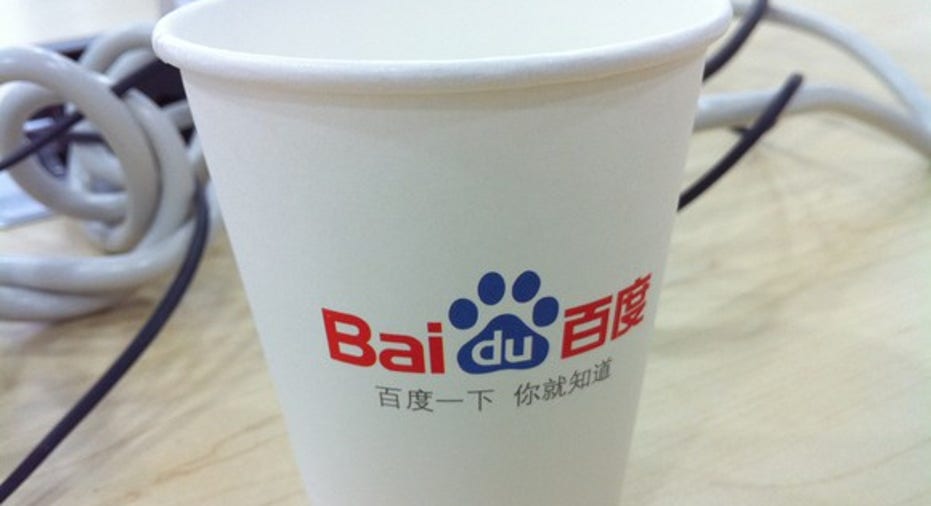1 Thing Baidu Investors Should Worry About

Back in July, the Chinese government announced an update to its advertising laws, the first major revisions since 1994. One of the functions of these new regulations is to define internet advertising. According to the new regulations, this includes paid search results, embedded links, email ads, videos, and images that have the purpose of promoting goods or services.
These regulations took effect beginning in September and seek to combat false and misleading practices, and provide strict governance in the areas of prescription medicine and tobacco, among others. It also requires government approval for ads in a variety of areas including health products and medical supplies.
Image source: Flickr user Julien GONG Min.
The scope of these regulations will encompass areas that include search, e-commerce, and social-networking sites that rely heavily on online advertising for revenue. These include some of China's most well-known companies, including search site Baidu (NASDAQ: BIDU), social networking company Tencent (NASDAQOTH: TCEHY), known for its WeChat messaging app, and social media platform Weibo (NASDAQ: WB).
According to eMarketer.com, Baidu and Tencent combined control over 31% of China's net digital ad market, with Baidu commanding over 21% .While each of these companies may be affected by the revised regulations, it seems Baidu will bear the brunt of the pain because of its heavy reliance on ad revenue and recent public missteps.
Show me the money
The costs of compliance for internet-related companies will vary, with the highest burden falling on those that produce the greatest percentage revenue from advertising. Weibo has an estimated 87% of its revenue from advertising.Baidu will face a greater hurdle than its peers with an estimated 96% of this year's revenue coming from internet advertising.Costs of compliance may include additional headcount to meet the regulatory burden, as well as a reduction in questionable or high-risk ads.
In the wake of the regulations, the largest component of Baidu's revenue, online marketing revenue, showed a 6.7% year-over-year decrease in the most recent quarter.Baidu's online marketing customers decreased by 15.9%.In the first and second quarters of this year, online marketing revenues were up 19.3% and 4.4% respectively, while online marketing customers were up 12% and 0.7%, respectively.
Weibo reported revenue that increased 42% and advertising and marketing revenue that increased by 48%. Net income, meanwhile increased a whopping 122%.Although it's not an apples-to-apples comparison, this still acts as a good proxy for growth. Weibo does not seem to be suffering nearly as much under the new regulations.
Why just Baidu, then?
Beyond the business nuts and bolts, Baidu might be feeling a more pronounced impact because two issues from this year involving the platform underscored how badly the new regulations were needed. The company faced criticism earlier this year for selling management rights to up to 40% of its online health forums to unlicensed private hospitals and fake medical groups. Accusations emerged that the forums, which previously acted as support groups for patients, engaged in questionable tactics that included promoting their services and deleting comments when their credentials were questioned.
Baidu's credibility took another hit when 21-year-old college student Wei Zexi died after undergoing an experimental cancer treatment advertised in a Baidu search. Baidu faced accusations of promoting false medical information.
Total overhaul
As a result of the increased scrutiny, Baidu has been overhauling the screening process it uses regarding advertisers on its site. On its most recent conference call, Baidu led with this:
Then later in the call:
The combination of increased scrutiny, public outcry, and compliance with new government regulations will weigh on Baidu's results in the near term. Foolish investors should monitor the company's results over the next few quarters to ensure the recovery of the online marketing revenue. This will be evidence that Baidu's growth is back on track.
10 stocks we like better than Baidu When investing geniuses David and Tom Gardner have a stock tip, it can pay to listen. After all, the newsletter they have run for over a decade, Motley Fool Stock Advisor, has tripled the market.*
David and Tom just revealed what they believe are the 10 best stocks for investors to buy right now...and Baidu wasn't one of them! That's right -- they think these 10 stocks are even better buys.
Click here to learn about these picks!
*Stock Advisor returns as of Nov. 7, 2016.
Danny Vena owns shares of Baidu. The Motley Fool owns shares of and recommends Baidu. The Motley Fool recommends Weibo. Try any of our Foolish newsletter services free for 30 days. We Fools may not all hold the same opinions, but we all believe that considering a diverse range of insights makes us better investors. The Motley Fool has a disclosure policy.



















